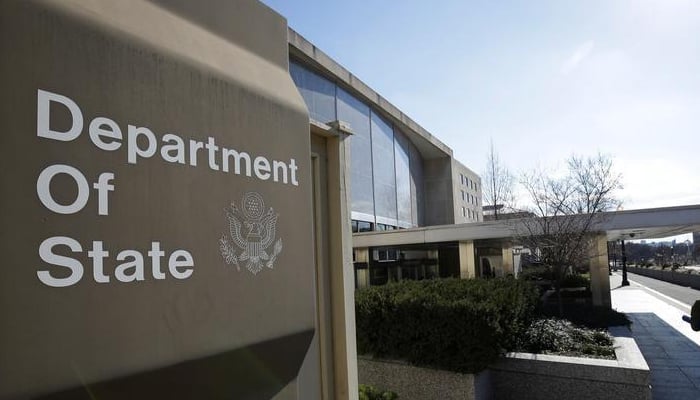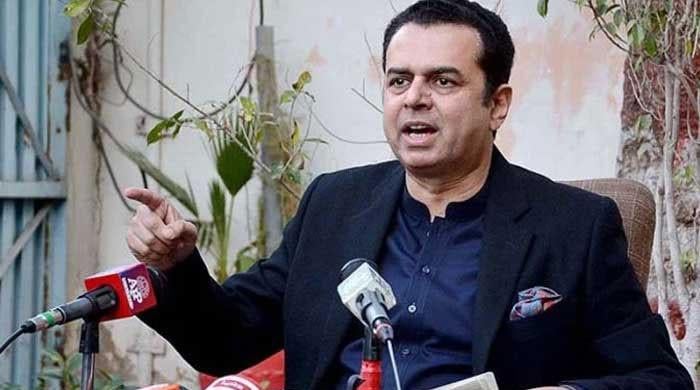US concerned over increasing societal violence based on religion in India
US State department releases 2020 Country Reports on Human Rights Practices
March 31, 2021

- US State Department report identifies Muslims and lower-caste Dalit groups as most vulnerable groups in India.
- US acknowledges Pakistani military, police, and law enforcement agencies' significant campaigns against militant and terrorist groups.
- Pakistan section of the report claims that there is a lack of government accountability.
WASHINGTON: The United States State Department on Tuesday raised concern over the increasing societal violence based on religion and caste in India and by religiously associated groups.
The annual '2020 Country Reports on Human Rights Practices', released by US Secretary of State Antony Blinken, identified Muslims and lower-caste Dalit groups as most vulnerable.
“The Ministry of Home Affairs data for 2016-17 showed 703 incidents of communal (religious) violence occurred in which 86 persons were killed and 2,321 injured. According to the NHRC, there were 672 cases of discrimination and victimization against Scheduled Castes and 79 cases against minorities in 2018-19,” said the report.
Talking about rights violations in Kashmir, the US State Department did note that the Indian government was taking steps to restore normalcy in the occupied territory. But it noted that high-speed 4G mobile internet remained restricted in most parts of occupied Kashmir.
Read more: BJP has sown the seeds of hatred in multicultural India, says EU human rights chief
The annual report said that separatist insurgents and terrorists in the "Union Territory of Jammu and Kashmir, the Northeast, and Maoist-affected areas committed serious abuses," including killings and torture of armed forces personnel, police, government officials, and civilians, and recruitment and use of child soldiers."
Pakistan lauded for campaign against terrorism
The country report on Pakistan acknowledged that military, police, and law enforcement agencies continued to carry out significant campaigns against militant and terrorist groups.
"Nevertheless, violence, abuse, and social and religious intolerance by militant organizations and other non-state actors, both local and foreign, contributed to a culture of lawlessness," it said.
"Terrorist violence and human rights abuses by non-state actors contributed to human rights problems, although to a lesser extent than in previous years, consistent with an overall decline in terrorist activity."
The report raised concerns regarding the "unlawful or arbitrary killings by the government or its agents", including extrajudicial killings; forced disappearances by the government or its agents; arbitrary detention; political prisoners; politically motivated reprisal against individuals located outside the country; arbitrary or unlawful government interference with privacy; serious restrictions on free expression, the press, and the internet, including violence against journalists, unjustified arrests and disappearances of journalists, censorship, and site blocking; government interference with the rights of peaceful assembly and freedom of association.
Read more: Influential US senate committee asks defence chief to raise human rights violations with India
The report mentioned the Khyber Pakhtunkhwa’s Actions (In Aid of Civil Power) Ordinance of 2019 that gives power to the authorities to detain civilians indefinitely without charge in internment camps, occupy property, conduct operations, and convict detainees in the province.
"The provincial high court ruled the ordinance unconstitutional, but the Supreme Court suspended this ruling. The appeal remained with the Supreme Court at year’s end. Pending the outcome of this appeal, the military retains control of detention centers and law enforcement activities in much of the former FATA," said the report.
It said that on July 20, the Supreme Court ruled that the National Accountability Bureau (NAB) violated the rights to a fair trial and due process in the arrest of two opposition politicians, Khawaja Saad Rafique and Khawaja Salman Rafique, who were detained by the NAB for 15 months “without reasonable grounds.”
Read more: What’s stopping Pakistan from criminalising police torture?
It also mentioned that the NAB last year arrested Mir Shakil-ur-Rahman, the editor-in-chief and owner of the country’s largest media group, the Jang Group in Lahore on charges relating to a 34-year-old property transaction.
The Pakistan section of the report claimed that there was a lack of government accountability, and abuses often went unpunished, fostering a culture of impunity among perpetrators, whether official or unofficial. Authorities seldom punished government officials for human rights abuses, it said.









